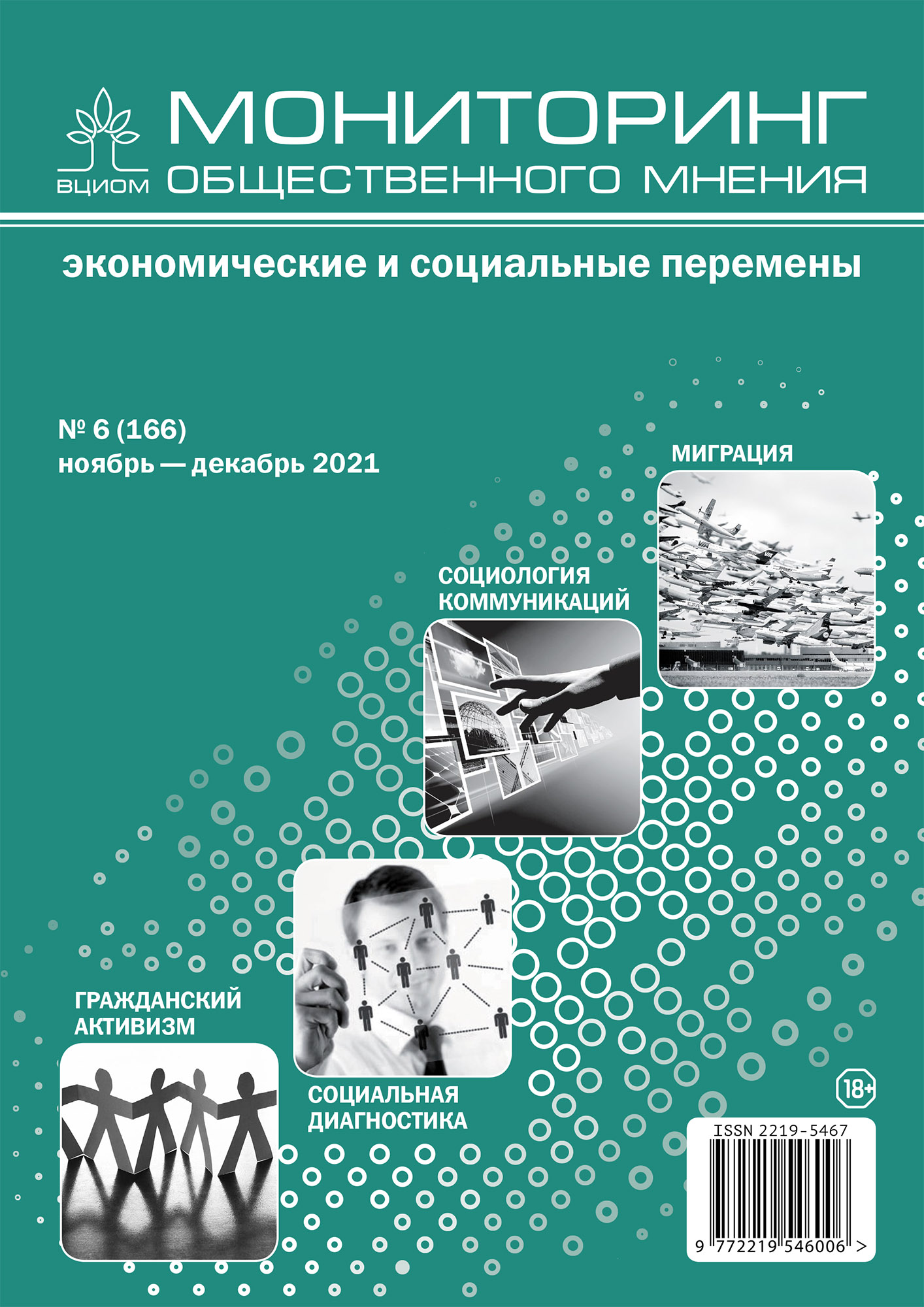Политическая мобилизация российской оппозиции на примере акций протеста в январе 2021 года
DOI:
https://doi.org/10.14515/monitoring.2021.6.2011Ключевые слова:
протесты, мобилизация, митинги, социология протеста, Алексей Навальный, Владимир Путин, оппозиция, социальные движенияАннотация
В статье на примере акций протеста января 2021 г. исследована политическая мобилизация российской оппозиции. На основе данных телефонного опроса, репрезентирующих население России (N = 1051), авторы прослеживают отражение политической мобилизации в общественном мнении. На базе материалов качественных интервью с участниками акции 21 января 2021 г. в Самаре (N = 23) рассматриваются практики протестной мобилизации участников акций в поддержку Алексея Навального. Результаты исследования показывают, что, оппозиции впервые с 2012 г. удалось широко мобилизовать информационные ресурсы и поднять уровень информированности об акциях до 90%. В то же время привлечь на свою сторону невовлеченных в оппозиционную активность россиян скорее не удалось: уровень одобрения протестов среди населения составляет 13%, и только каждый десятый участник опроса (9%) высказал желание принять участие в подобных протестных акциях. Основными каналами протестной мобилизации стали социальные сети. Выявлен высокий уровень протестной самоорганизации участников январских акций в Самаре — большинство из них способны самостоятельно координировать свои действия на акциях. Таким образом, для современного российского протестного движения характерен переход от вертикальной к горизонтальной протестной мобилизации, ярким примером которой являются акции протеста 2020 г. в Беларуси.
Загрузки
Опубликован
Как цитировать
Выпуск
Раздел
Лицензия
Copyright (c) 2021 Мониторинг общественного мнения: экономические и социальные перемены

Это произведение доступно по лицензии Creative Commons «Attribution-NonCommercial-ShareAlike» («Атрибуция — Некоммерческое использование — На тех же условиях») 4.0 Всемирная.






